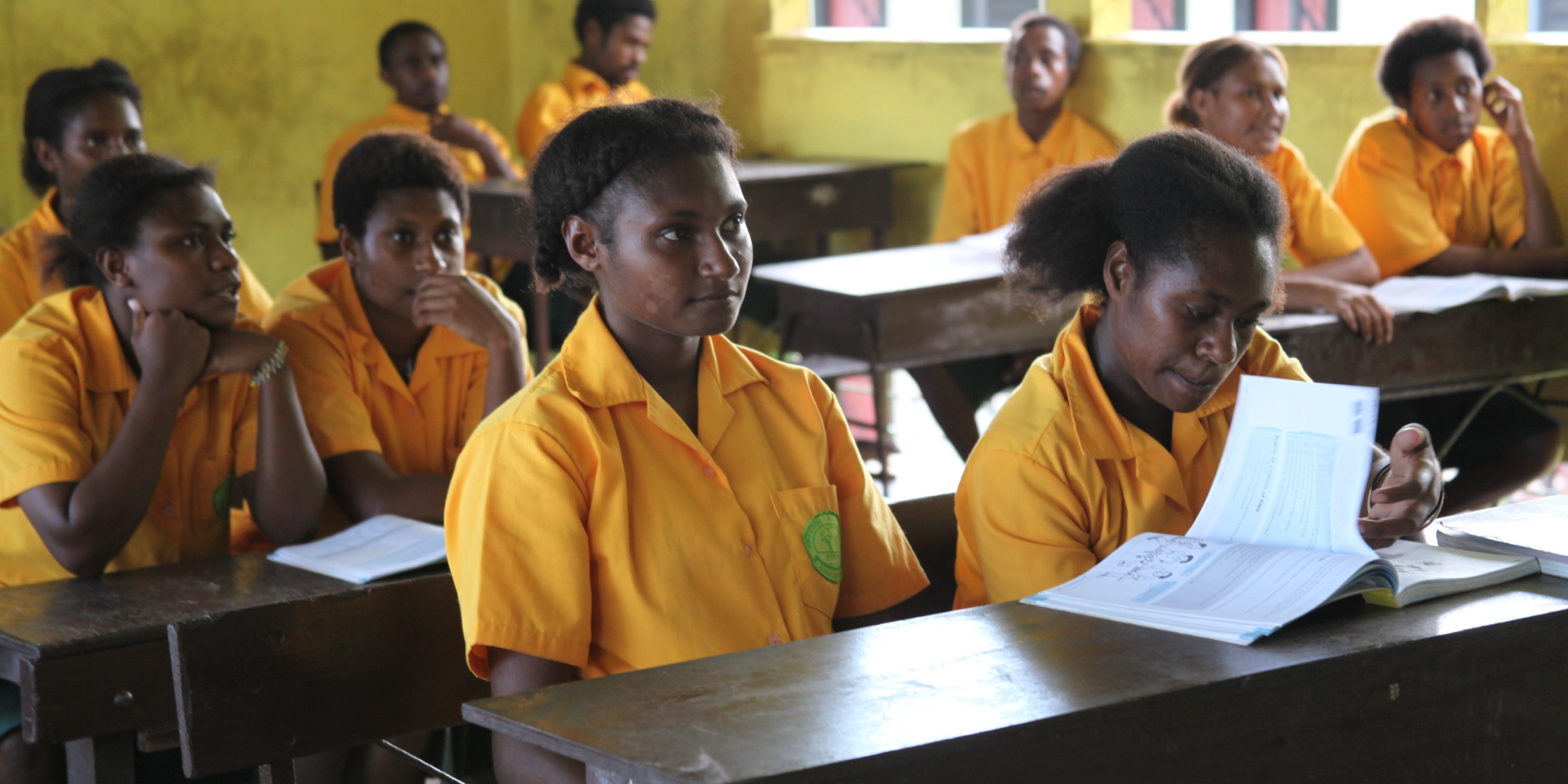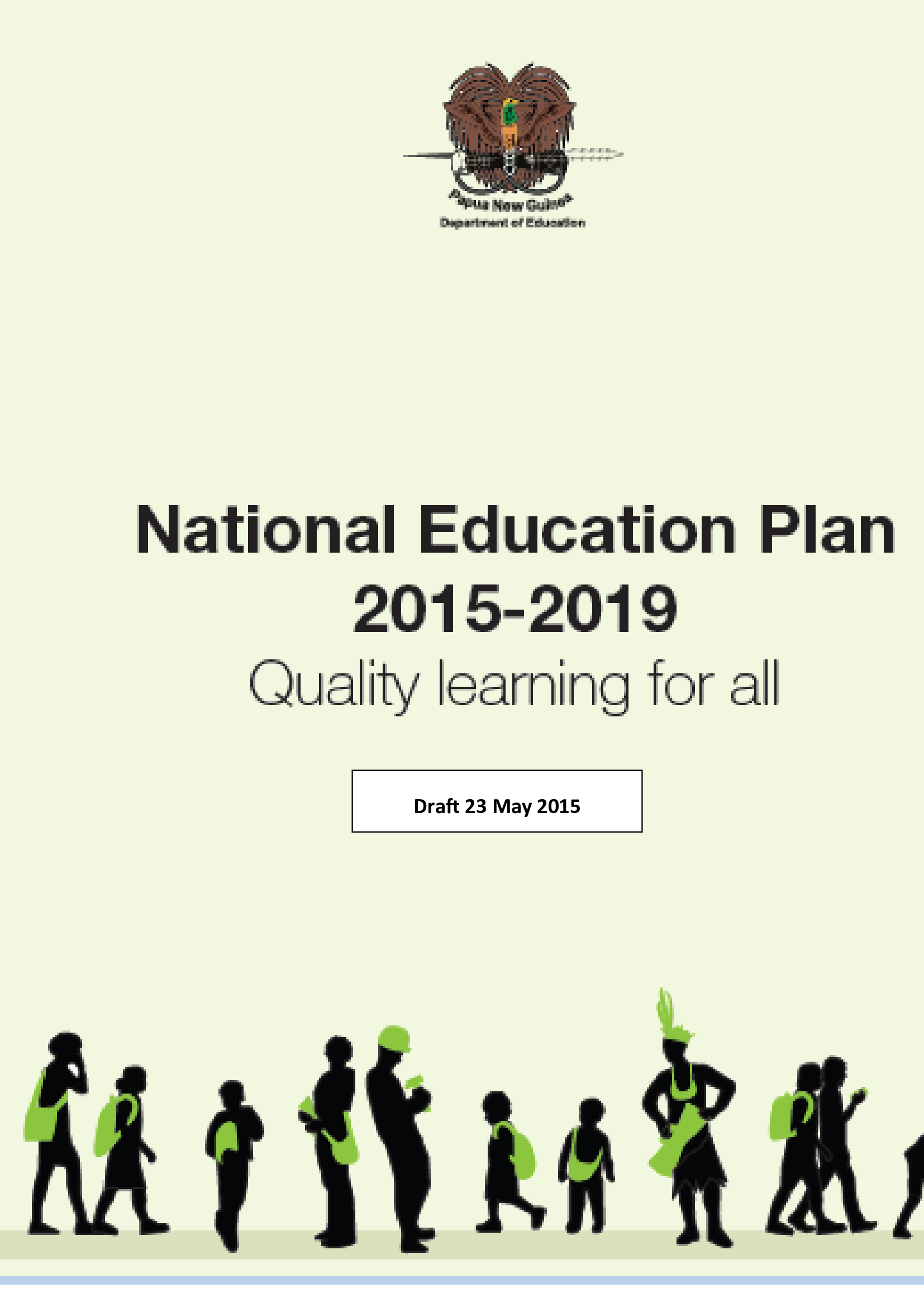Education in Papua New Guinea

Partner since:
Total grant support: US$40,487,770
Grant eligibility:
- Multiplier
- Girls' Education Accelerator
- System capacity
- System transformation
Education sector plan
Objective: Give everyone an opportunity to be educated and to transform their lives using a holistic, inclusive and integrated approach.
Coordinating agency: JICA
GPE Team lead: Muhammad Tariq Khan

